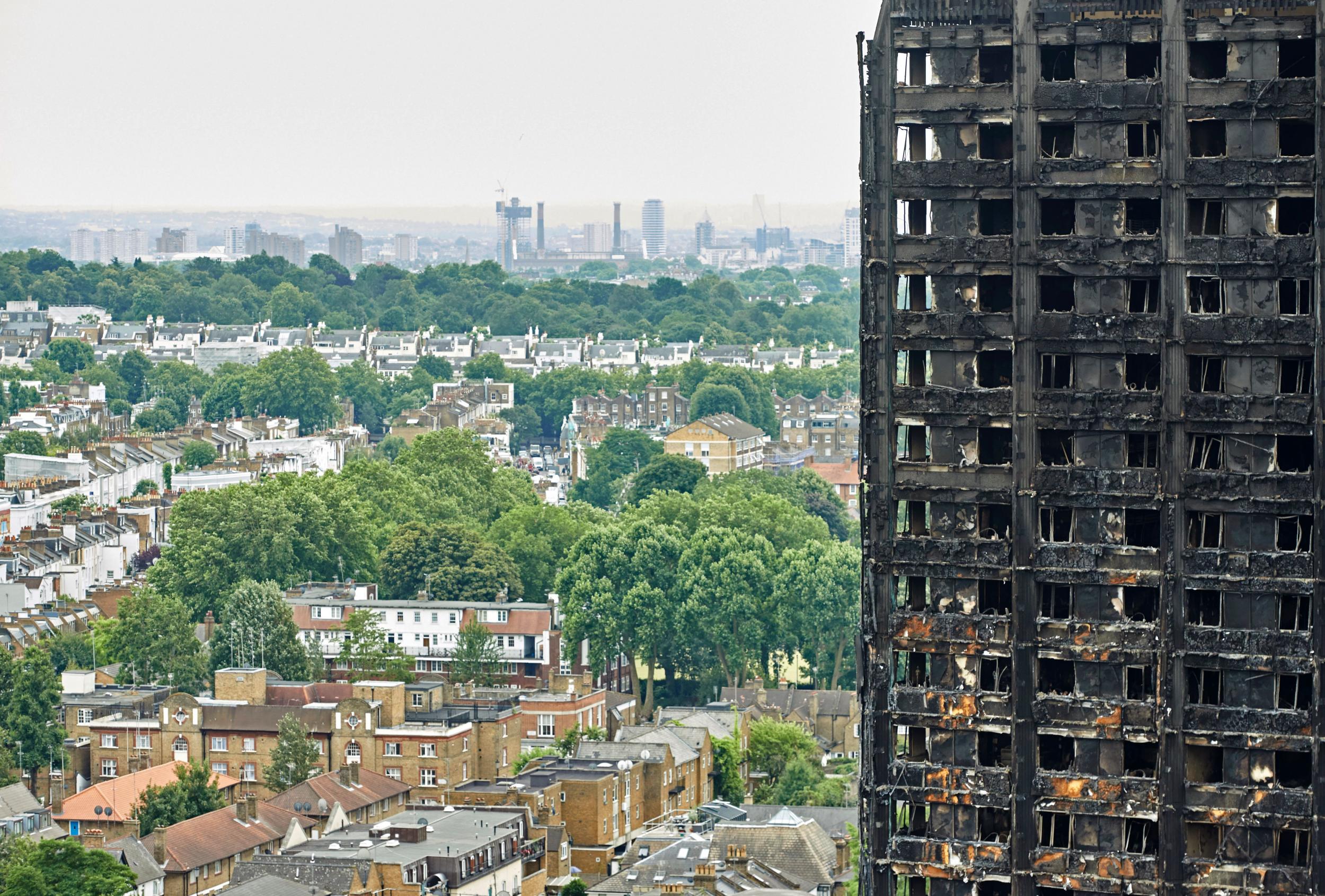Grenfell contractor ‘misrepresented cheap cladding price to pocket the difference’, inquiry hears
'I would suggest by that Rydon took some of the savings for themselves', contracts manager says

Your support helps us to tell the story
From reproductive rights to climate change to Big Tech, The Independent is on the ground when the story is developing. Whether it's investigating the financials of Elon Musk's pro-Trump PAC or producing our latest documentary, 'The A Word', which shines a light on the American women fighting for reproductive rights, we know how important it is to parse out the facts from the messaging.
At such a critical moment in US history, we need reporters on the ground. Your donation allows us to keep sending journalists to speak to both sides of the story.
The Independent is trusted by Americans across the entire political spectrum. And unlike many other quality news outlets, we choose not to lock Americans out of our reporting and analysis with paywalls. We believe quality journalism should be available to everyone, paid for by those who can afford it.
Your support makes all the difference.The main contractor behind the refurbishment of Grenfell Tower offered cheaper, more combustible cladding while misrepresenting the savings the switch would lead to in a bid to “pocket the difference” an inquiry has heard.
The investigation into the blaze that tore through the North Kensington tower block, killing 72 people, had already heard its aluminium composite material (ACM) cladding burned as hot as lighter fluid on the night the building went up in flames.
Now it has been revealed that, when vying for the contract to refurbish the building, construction company Rydon told the block’s landlord it could save them £293,368 if they chose to wrap the building in the aluminium cassette form of cladding filled with plastic.
However just four days earlier, the firm had been told by cladding installers Harley Facades that such an instillation could save £419,627.
Asked by inquiry lawyer Richard Millett QC why the firm had presented such a different figure to the Kensington and Chelsea Tenants’ Management Organisation (TMO), Rydon contracts manager Simon Lawrence said: “I would suggest by that Rydon took some of the savings for themselves.”
Asked whether he knew that at the time, the construction firm manager added: “I think I probably did, yes.”
He went on to note he “would assume” that money “went against risk or additional profit”.
Pressed on whether there was a “plan in Rydon to keep the TMO in the dark about the real extent of the savings on the ... panels and then pocket the difference” to make up a shortfall from a previous estimating error, the contracts manager replied: “That could be the reason for it.”
The inquiry has already found the flames which rapidly engulfed the 24-storey west London building in June 2017 were fuelled by its ACM cladding system, which had a polyethylene core and has since been banned from high-rise buildings along with other combustibles.
It has also heard the decision to switch to the cheaper covering for the building was the main cost saving measure in an £800,000 package of proposed savings the TMO had asked the firm to find.
Reacting to the evidence, fire chiefs called the refurbishment an “utter scandal”.
Matt Wrack, general secretary of the Fire Brigades Union, said: “We can now see that Rydon chose to wrap the building in cheaper flammable cladding and planned to pocket the difference.
“At every turn in this phase of the inquiry, we’ve seen that those involved in the building’s refurbishment prioritised cost and aesthetic over safety and 72 lives were lost as a result.”
Earlier on Monday, the inquiry head Rydon “came to the conclusion” that the project “didn’t need” a fire consultant – having initially considered bringing in a specialist to oversee plans for the lower four floors of the building.
Mr Lawrence, who was involved in the revamp between June 2014 and October 2015, told the hearing: “The initial intention regarding fire consultants was for the lower four floors.
“The cladding, in our view, at the time was less of a risk than the lower four floors because of the means of escape.
“We thought that it might be a good idea to have a fire consultant for those lower four floors but, as the design progressed, we ultimately came to the conclusion we didn’t need that fire consultant for the lower four floors.”
Mr Lawrence could not remember when this decision was made, but added that not hiring specialist fire safety consultants was standard practice for Rydon work, including on previous jobs involving high-rise overcladding.
Additional reporting by PA
Join our commenting forum
Join thought-provoking conversations, follow other Independent readers and see their replies
Comments